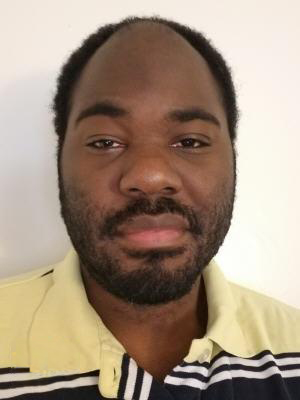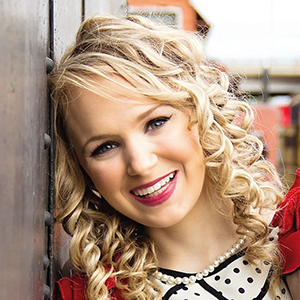
Notebook scribbles to synthesis pathways
Running around the halls of the Life Sciences Institute at the University of Michigan, postdoctoral scholar Kendrick Smith always carries a notebook crammed full of drawings and to-do lists.
“It's almost like … therapeutic for me because I spend so much time just drawing random things and ideas,” Smith said.

Some of those random ideas led to Smith’s selection as a 2024 Maximizing Opportunities for Scientific and Academic Independent Careers, or MOSAIC, scholar. This American Society for Biochemistry and Molecular Biology program is funded by the National Institutes of Health.
Smith’s love of science began in elementary school. While earning a bachelor’s degree in chemistry, he conducted biosensor research as a participant in the National Science Foundation’s Research Experience for Undergraduates program. Later, he was introduced to the field of organometallics through palladium catalysis research.
When it came time to graduate, Smith was torn.
“I was also an active musician at the time, so I was asking myself, ‘should I go to music school?’” he said, “while my boss, Professor Chruma, was urging me to consider graduate school for chemistry. I ultimately decided to apply to grad school.”
Smith earned his Ph.D. at the University of North Carolina at Chapel Hill in Jeffrey Johnson’s lab. He studied rhodium catalysis for total synthesis of biologically important natural products. Rhodium catalysts are known for efficiency and selectivity, making them sought-after for complex chemical reactions that otherwise could not happen in a lab.
Rhodium metal was not the only interesting catalyst of study, Smith found. He jumped into the field of biocatalysis, and his postdoctoral research in Alison Narayan’s lab at U–M focuses on the discovery of enzymes, instead of hard metals, as catalysts for natural product synthesis.
“As a synthetic chemist, when I have a desired reaction, I can write out a mechanism on how the bonds should be broken and formed,” he said. “With biocatalysis, now I ask if there exists an enzyme that could potentially allow me to mimic that same type of reaction.”
Pivoting to this work after a Ph.D. in organic synthesis was not easy and meant getting comfortable with failure early in his postdoc. Smith said his music offered him a unique set of skills for this switch.
“I see the discipline that came from music,” he said. “There were always a lot of four- to five-hour practice sessions. The same is true in bench work. You struggle in the beginning, then wake up one day and suddenly can complete the experiments much more smoothly than before.”
Smith hopes to combine the synthetic routes of his Ph.D. and the biocatalysis work of his postdoc into his work in both the lab work and the classroom.
“This is another notebook idea,” he said, “but I hope to repurpose undergraduate organic lab classes to incorporate more of these modern techniques within the field of biocatalysis.”
He proposes replacing dangerous pyridinium chlorochromate oxidations with a biocatalyst. “You're getting across the same reaction chemistry they learned in class,” he said, “but they’re also learning something about enzymes and organic chemistry.”
Enjoy reading ASBMB Today?
Become a member to receive the print edition four times a year and the digital edition monthly.
Learn moreGet the latest from ASBMB Today
Enter your email address, and we’ll send you a weekly email with recent articles, interviews and more.
Latest in People
People highlights or most popular articles

Thiam elected to EMBO
He was recognized during the EMBO Members’ Meeting in Heidelberg, Germany, in October.

The timekeepers of proteostasis
Learn about the cover of the winter 2026 ASBMB Today issue, illustrated by ASBMB member Megan Mitchem.

Defining JNKs: Targets for drug discovery
Roger Davis will receive the Bert and Natalie Vallee Award in Biomedical Science at the ASBMB Annual Meeting, March 7–10, just outside of Washington, D.C.

Building better tools to decipher the lipidome
Chemical engineer–turned–biophysicist Matthew Mitsche uses curiosity, coding and creativity to tackle lipid biology, uncovering PNPLA3’s role in fatty liver disease and advancing mass spectrometry tools for studying complex lipid systems.

Summer research spotlight
The 2025 Undergraduate Research Award recipients share results and insights from their lab experiences.

Pappu wins Provost Research Excellence Award
He was recognized by Washington University for his exemplary research on intrinsically disordered proteins.

